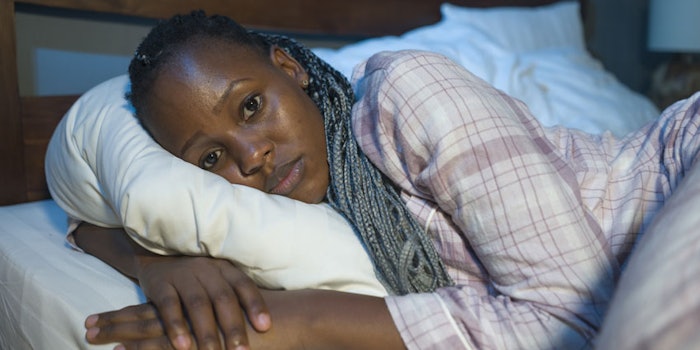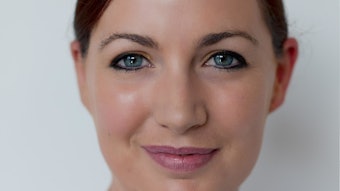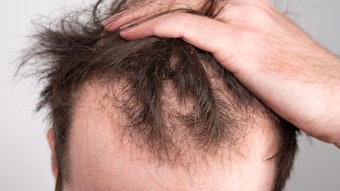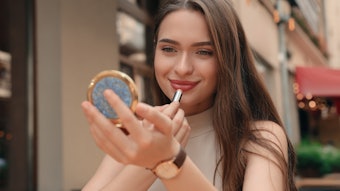
Data collected from the app Sleep Cycle—a tool designed to track, analyze and optimize users' sleep patterns—has aggregated more than 33 million nights of sleep data and identified crucial areas impacted by the global COVID-19 pandemic. As beauty is impacted by sleep, this could underline areas of future need in especially young consumers, as results indicate.
In addition to the data collected between January and May 2020, a total of 69,047 global Sleep Cycle users participated in an in-app survey deployed from June 17 to 22, 2020, in 22 countries. Among the respondents, 95% reported being under stay-at-home orders at some point in the early stage of the pandemic. The study, "Sleep and Mental Health Amidst the 2020 Coronavirus Pandemic," was conducted in collaboration with Rebecca Robbins, Ph.D., sleep researcher and postdoctoral fellow at Brigham and Women’s Hospital and Harvard Medical School.
For more on connections between sleep and beauty, join us Nov. 2-5, 2020, for Beauty Accelerate, where Russ Walters, Ph.D., will explore this subject in depth.
Key Results
- Worst sleep. Teens and young adults (ages 18-24) got the worst sleep, felt more depressed (34.8% reporting), felt lonely and noted used "too much" technology as they transitioned to e-learning (15.02% reporting). They also pointed to spending less time in the daylight as a change in their daily routine (13.76% reporting). Notably, the most vulnerable age group (65 to 74 years old) slept the best.
- Sleep latency. Regardless of region, age or gender, 37% of respondents found it took longer to fall asleep (aka sleep latency). Central America reported the highest increase (68%), followed by North America (49%), Africa (47%), Europe (42%), Australia (40%), then Asia (24%). Women were twice as likely (45% increase) to experience this effect than men (29% increase). In relation, men were more worried about losing their jobs or personal finances, whereas women were more anxious in general. Also, 39.1% of health care workers reported it taking longer to fall asleep than before the pandemic.
- Emotional effects. Almost half of all respondents globally felt more anxious (notably 50.1% of 35-34 year-olds), and one quarter felt more depressed (notably 34.8% of 18-24 year-olds). In contrast ~85% of those 55-64 years old felt "no more depressed" than before, and ~58-62% of those 55-75+ years old felt "no more anxious" than before.
- Tech consumption. Globally, people reported too much consumption of news and technology. This, of course, can affect the circadian cycle, which in turn has been shown to affect the repair cycles in skin.
- Top worries. The survey also highlighted top worries experience by consumer age groups. For example, in 18-24 year-olds, top concerns were: loneliness (40.1%), too much tech (38.1%), anxious and not sure why (33.0%), becoming ill and too much news (23.5% each) and finances (22.7%). In contrast, 25-34 year-olds ranked top concerns as: finances (34.2%), anxious and not sure why (32.0%), too much tech (31.9%), being lonely (31.4%), and becoming ill and too much news (31.0% each). Interestingly, with increasing age, % worries dropped drastically.
Executive Summary
Robbins offered the following executive summary of the overall findings. "The COVID-19 pandemic has fundamentally changed our lives in nearly every way, profoundly impacting the way we work, live and our ability to sleep. For those fortunate to work from home, we now face less structure in our working lives and potentially more responsibilities, like caring for loved ones or children. Unfortunately, many have also lost their jobs or are working longer hours. In these uncertain times, sleep is likely to suffer."
She adds that sleep is a cornerstone of health and well-being, and without healthy sleep, individuals are prone to negative mood, anxiety and depression. "In our analysis of Sleep Cycle data and user-reported health and well-being data, we identify the groups who are suffering from sleep issues and poor mental health. We demonstrate that our global population is experiencing adverse mental health consequences associated with COVID-19, such as more depressed mood and anxiety."
Learn how negative emotions affect skin aging.
Fortunately, she adds easily modifiable behaviors have been identified to pave the way toward better sleep during COVID-19. Examples include calming bedtime routines and cutting down on news exposure. "Prioritizing sleep may be one of the most expedient pathways to mental and emotional health during troubling times," she notes.










